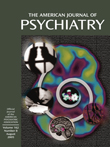This narrative of 12 Jewish boys and girls who survived genocide in Poland, Belgium, Holland, and France, many because of the dedication of non-Jews, is precious. The atrocities committed by the Nazis need repeated retelling to remind us of the ferocity and, alas, the banality of human cruelty fueled by racism and self-interest. When inflicted on children, they carry special pathos. This book is also a testament to the courage of non-Jews who risked (and sometimes lost) their own lives and those of their children to save others. The 12 hidden children, interviewed by author Kerry Bluglass as adults, not only survived but went on to live full, productive lives. Their outcome challenges the common belief that childhood trauma inevitably leads to pathology—even intergenerational pathology. Without doubt, some will be tempted to cast the survivors’ commonplace difficulties in the context of their childhood trauma, but problems such as a tendency toward perfectionism or marital discord are hardly unusual or indexes of pathology. What enabled these children to thrive rather than become scarred, dysfunctional citizens? Hidden From the Holocaust, written by a psychiatrist, aims to elucidate what contributed to the children’s resilience. The author is cautious in her warning that the term “resilience,” which suggests unexpected positive outcomes in the face of severe, even life-threatening, adversity, does not imply that its absence indicates weakness or lack of fortitude.
For psychiatry, understanding how children weather such hardship without obvious damage has important implications, because the hope is that it will foster the development of protective measures in at-risk populations. The author advances several possible psychological explanations. One is that the trauma had less impact than it might have had because it occurred during latency. This notion is weakened by the description given of a child as young as 3 and the omission of testimonials from hidden adolescents. Happily, many adolescents also fared well. Another point is the positive contribution of the bonding between hidden children and their rescuers. But how about the boy locked in solitary confinement for 2 years? How about the young Polish girl cruelly exploited, humiliated, and abused?
The positive impact of adaptive defense mechanisms, as described by George Vaillant
(1) (altruism, humor, suppression, and sublimation), is given prominence. Fine, but how were the hidden children able to develop these desirable psychological adaptations? Would we be able to predict, on the basis of these concepts, which children would do well and which would not? Unlikely. The explanations advanced are generalities that are not based on systematic prospective observations and are less than convincing. As a result, the book contributes little to our understanding of what mechanisms account for the children’s favorable outcome. Perhaps that is inevitable. It is futile, on the basis of a handful of retrospective reports, to attempt to identify individual protective factors. At the same time, although sad memories recur, children’s capacity to surmount fear, loss, sorrow, and other brutal circumstances may be more common than some are willing to consider.

